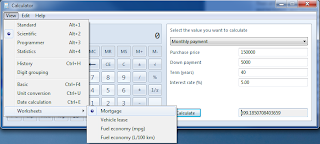Does anyone have any experience working with a self-directed IRA (Roth or otherwise)? I'm looking to head down this route and I have questions about the day-to-day operations - does it need a custodian (other than me), does the custodian write the checks and sign contracts, etc.
I've heard about using self-directed IRAs for several years, mostly about how they can be used for investing in real estate. I was always intrigued by this, but never really was in a position to set one up. A couple of changes going into effect in 2010 have made now seem like a good time to get going with this. In 2010, the income limits for who could convert a traditional IRA to a Roth IRA are going away. Additionally, if you convert in 2010, you can spread the taxes you'll need to pay over 2 years*. When I was laid off of my job over a year ago, I took my 401(k) and converted it into a rollover IRA. With the stock market down, now is good time to convert since I will have a lower amount I'll have to pay taxes on. (I should note that the current law applies to traditional IRAs converted to a Roth IRA. It's unclear if the IRS will decide that the law also applies to rollover IRAs converted to Roths. After talking to my CPA, I've decided that to be safe, I'll convert my rollover IRA to a traditional IRA and then convert it to a Roth.)
My point for doing this is to use the self-directed IRA funds to make hard money loans, which I have been doing for the last couple of years, earning between 10% and 12%. Getting that return tax free would be very nice.
* If you declare the conversion in 2010, you'll have to pay taxes on the converted amount in 2010. But if you don't, you must declare one half of the contributions in each of 2011 and 2012. What I will do in those years is calculate how much I will owe in taxes and simply adjust my W-4 withholding at my day job to spread the tax burden out over the entire year. Of course, it's likely that tax rates in 2011 and 2012 will be higher than 2010, but of course, that's anyone's guess. Lots can happen between now and then and I'm a fan of delaying paying taxes as long as you can.
I've heard about using self-directed IRAs for several years, mostly about how they can be used for investing in real estate. I was always intrigued by this, but never really was in a position to set one up. A couple of changes going into effect in 2010 have made now seem like a good time to get going with this. In 2010, the income limits for who could convert a traditional IRA to a Roth IRA are going away. Additionally, if you convert in 2010, you can spread the taxes you'll need to pay over 2 years*. When I was laid off of my job over a year ago, I took my 401(k) and converted it into a rollover IRA. With the stock market down, now is good time to convert since I will have a lower amount I'll have to pay taxes on. (I should note that the current law applies to traditional IRAs converted to a Roth IRA. It's unclear if the IRS will decide that the law also applies to rollover IRAs converted to Roths. After talking to my CPA, I've decided that to be safe, I'll convert my rollover IRA to a traditional IRA and then convert it to a Roth.)
My point for doing this is to use the self-directed IRA funds to make hard money loans, which I have been doing for the last couple of years, earning between 10% and 12%. Getting that return tax free would be very nice.
* If you declare the conversion in 2010, you'll have to pay taxes on the converted amount in 2010. But if you don't, you must declare one half of the contributions in each of 2011 and 2012. What I will do in those years is calculate how much I will owe in taxes and simply adjust my W-4 withholding at my day job to spread the tax burden out over the entire year. Of course, it's likely that tax rates in 2011 and 2012 will be higher than 2010, but of course, that's anyone's guess. Lots can happen between now and then and I'm a fan of delaying paying taxes as long as you can.



_507.jpg)



